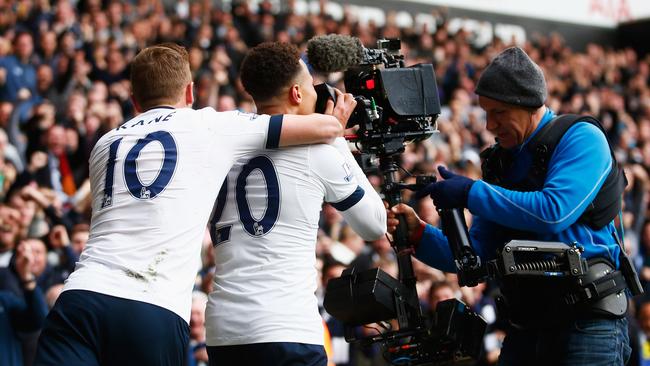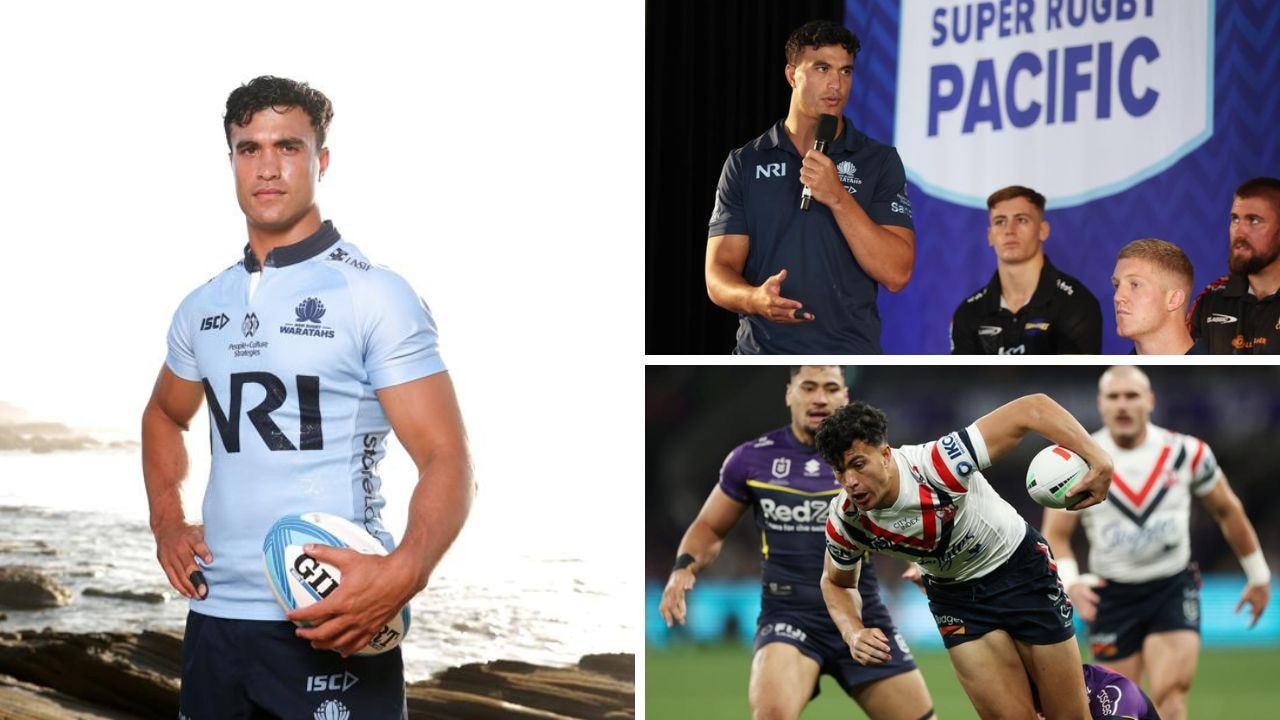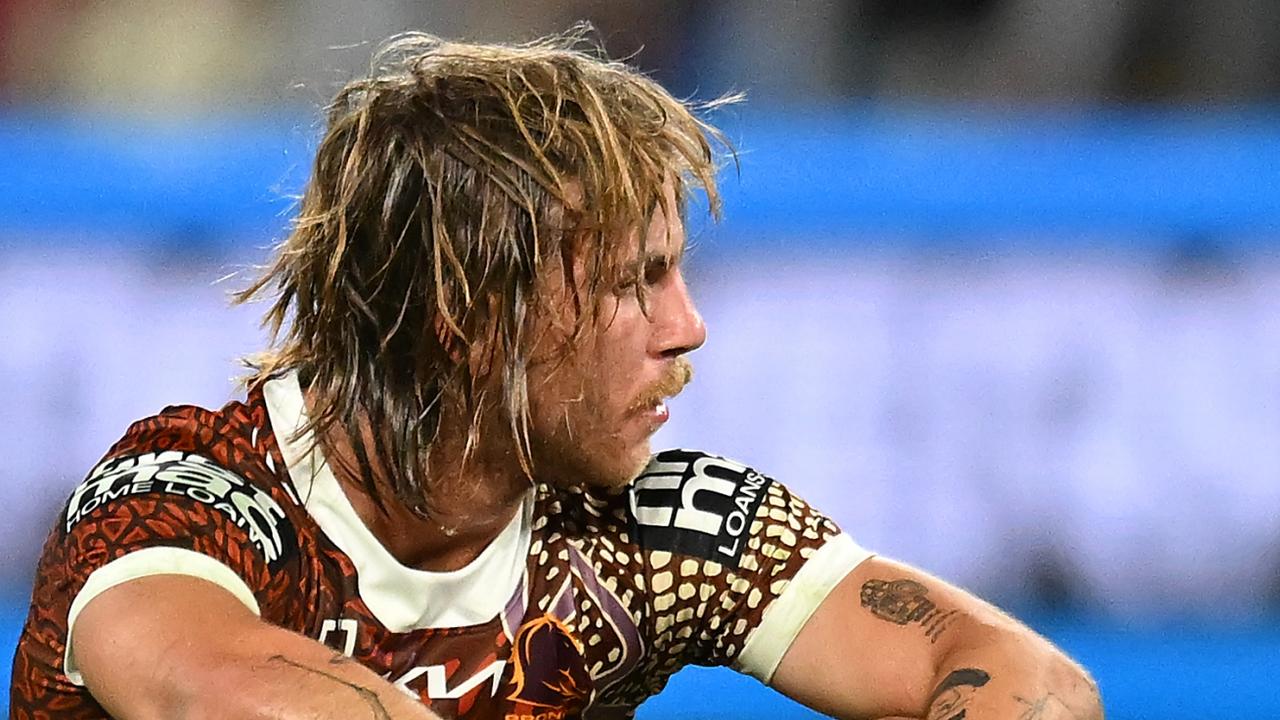Sport’s gravy train finally derailed
The long-term outcome of the coronavirus pandemic is likely to cause sharp downward pressure on player wages because of a dramatic slump in the value of broadcast rights.

Sport’s gravy train has finally hit the buffers. The long-term outcome of the coronavirus pandemic is likely to cause sharp downward pressure on player wages because of a dramatic slump in the value of broadcast rights.
Senior figures from English Premier League clubs, the broadcast industry, European and international football administration have all told The Times they are convinced the crisis will lead to financial problems for many broadcasters across the world, with the result being less money for sports rights in the near future.
That does not mean that the English Premier League will lose its dominant position in the world, because it will still be more attractive globally than other leagues, but it looks certain that there will be less income from TV and sponsorship across the board.
The same pain will be felt by all of Australia’s professional sports, with broadcast partners already flagging smaller deals next time around.
The obvious outcome of that will be less money going to clubs, and therefore less cash available for players’ salaries — which have been rising exponentially at top clubs for the past 25 years — and less available for the kind of staggering transfer fees paid for superstar players in the past few years.
When Daniel Levy, the Tottenham Hotspur chairman, says people who are talking about player transfers this summer “need to wake up to the enormity of what is happening” in the world, he is encapsulating the feelings of many in football and broadcasting.
The predicted downturn will affect every sport and every football club, but it will be particularly painful for those clubs who have big debts and big outgoings. The timing has been particularly bad for Spurs, less than a year into their new stadium and with a £637 million ($1.3bn) stadium loan to pay off over the next 23 years.
The pandemic has sparked a global economic shutdown of unprecedented proportions. Sky and BT Sport, who have the domestic rights for the English Premier League, are shedding enormous numbers of subscribers because they have no live sport to show. Industry insiders say the worry is, in these straitened times, how many of those subscribers will return when play finally resumes.
The EPL came through the recession of the late Noughties almost unscathed, and enjoyed successive 70 per cent rises in domestic rights in 2013 and 2016. The signs that the peak had been reached domestically came in 2019, when the overall value dropped 7.5 per cent to £5 billion, and that was despite Amazon buying two packages.
The impact of that was more than cushioned by the overseas rights going up, to £4.2bn over 2019-22 from £3.1bn for the previous three years, so the total three-year income will be more than £9bn.
All the evidence now is that it has peaked. The prospect of the EPL achieving the same level in its next rights auction — due to take place in 10 months’ time — appears remote.
“It is absolutely certain that there will be a lot less money for sport going forward — and some people might say that has been a long time coming to the market here,” said one broadcasting industry figure. “This will not just hit football — every sport that needs to agree a new rights deal in the near future is going to suffer.”
Another experienced industry figure added: “This is not just the UK, broadcasters will be under pressure across the world.”
The board of Rugby Australia, for one, should be nervous.
Those sports and competitions that secured recent long-term deals, such as the English Football League and the FA, will have bought themselves time, but for those such as the Rugby Premiership or rugby league’s Super League, who were trying to secure new broadcasting contracts, the timing could not be worse.
As for the English Premier League, it was only two months ago that it was hailing a huge six-year deal that had been done with the Nordic countries worth more than £2bn from 2022-28 with the Nordic Entertainment (NENT) group. That could soften the blow, but it relies on NENT remaining solvent and being able to attract subscribers.
International sports streaming platforms such as America’s DAZN have been hard hit by the shutdown, and if the global economic downturn means fewer subscribers, that presents a big challenge to them.
There is also likely to be growing pressure on the large marketing agencies such as WME-IMG, who have spent billions on the rights for wrestling and UFC.
Could this be the time that Amazon or another streaming giant comes in and takes the majority of English Premier League matches in the next auction? That is possible, but past experience has shown that these platforms do not throw money about just for the sake of it.
Amazon’s two rounds of matches in December proved successful, but it paid only £90m for its rights. Shelling out £3bn to take them from Sky would be a huge change of direction.
How the clubs will adapt remains to be seen. Will, for example, there start to be large divisions within individual teams with the marquee players on one level and the bulk of the squad many rungs below?
Will clubs increasingly choose to spend less on transfers and concentrate their funds on maintaining player salaries?
Even more worrying for the lower reaches of the professional game, will the trickle-down of money from the top dry up?
It is a new world, and nobody in sport is feeling brave.
THE TIMES


